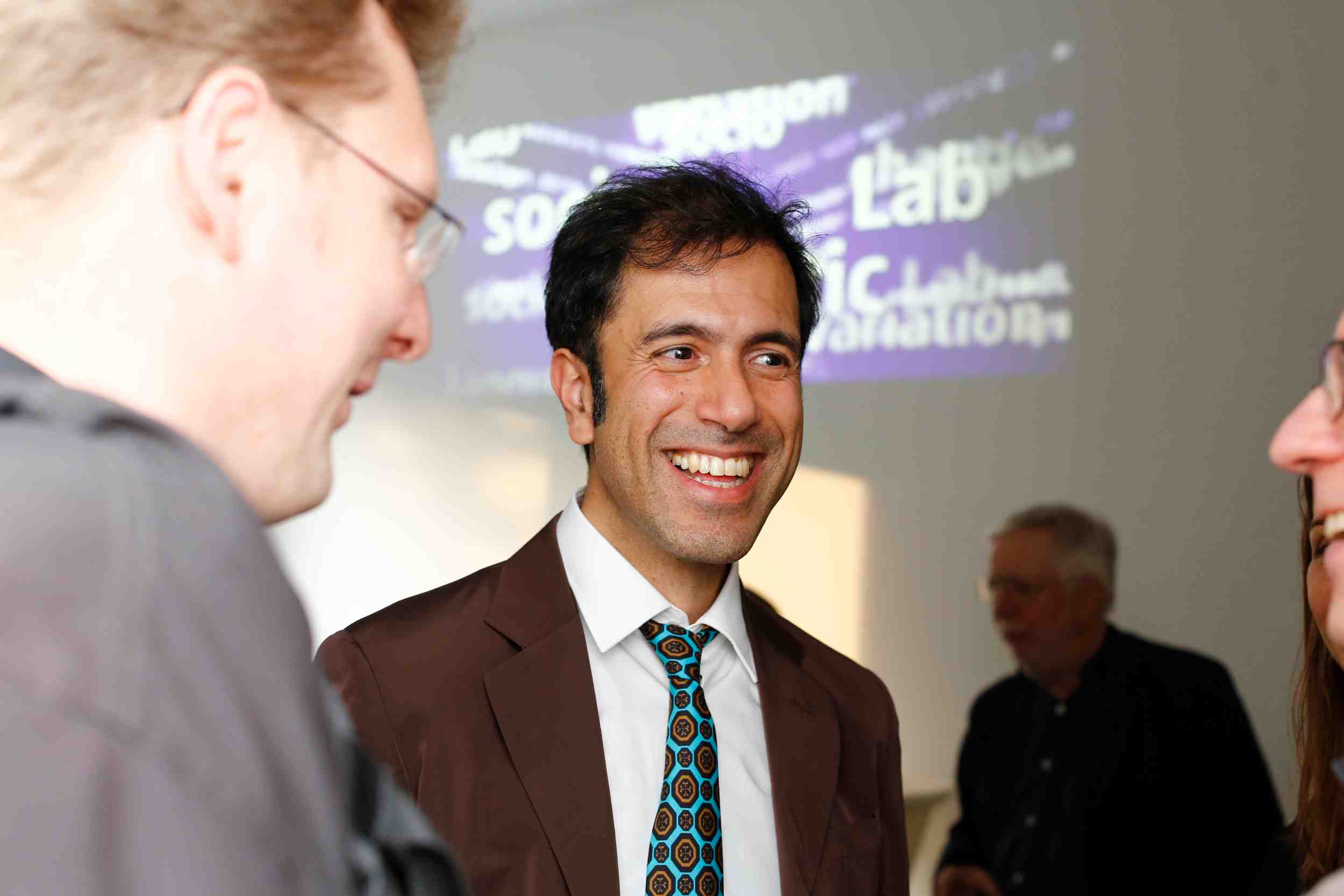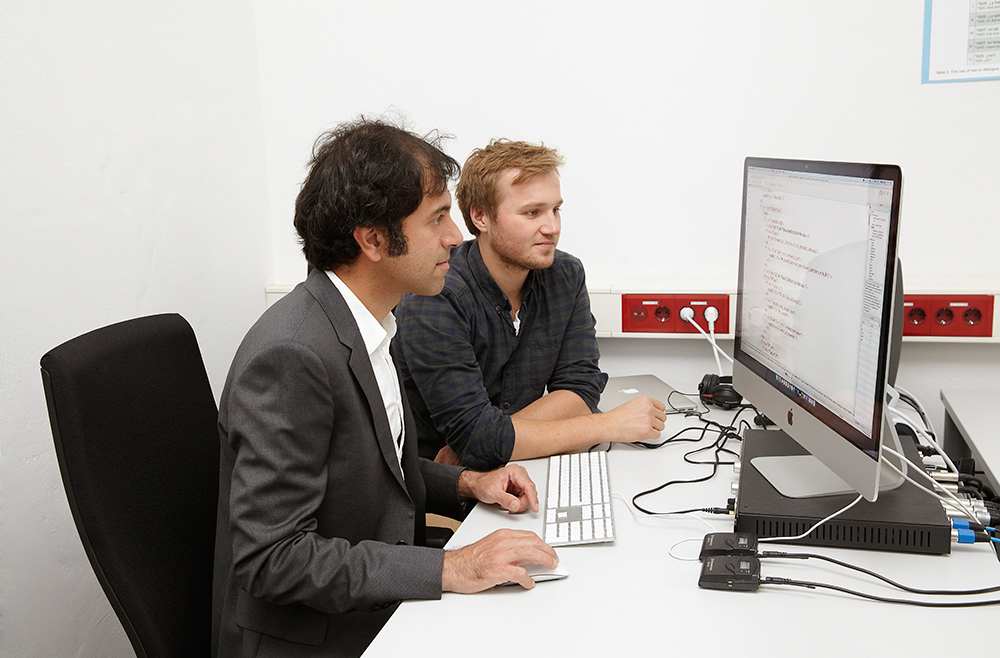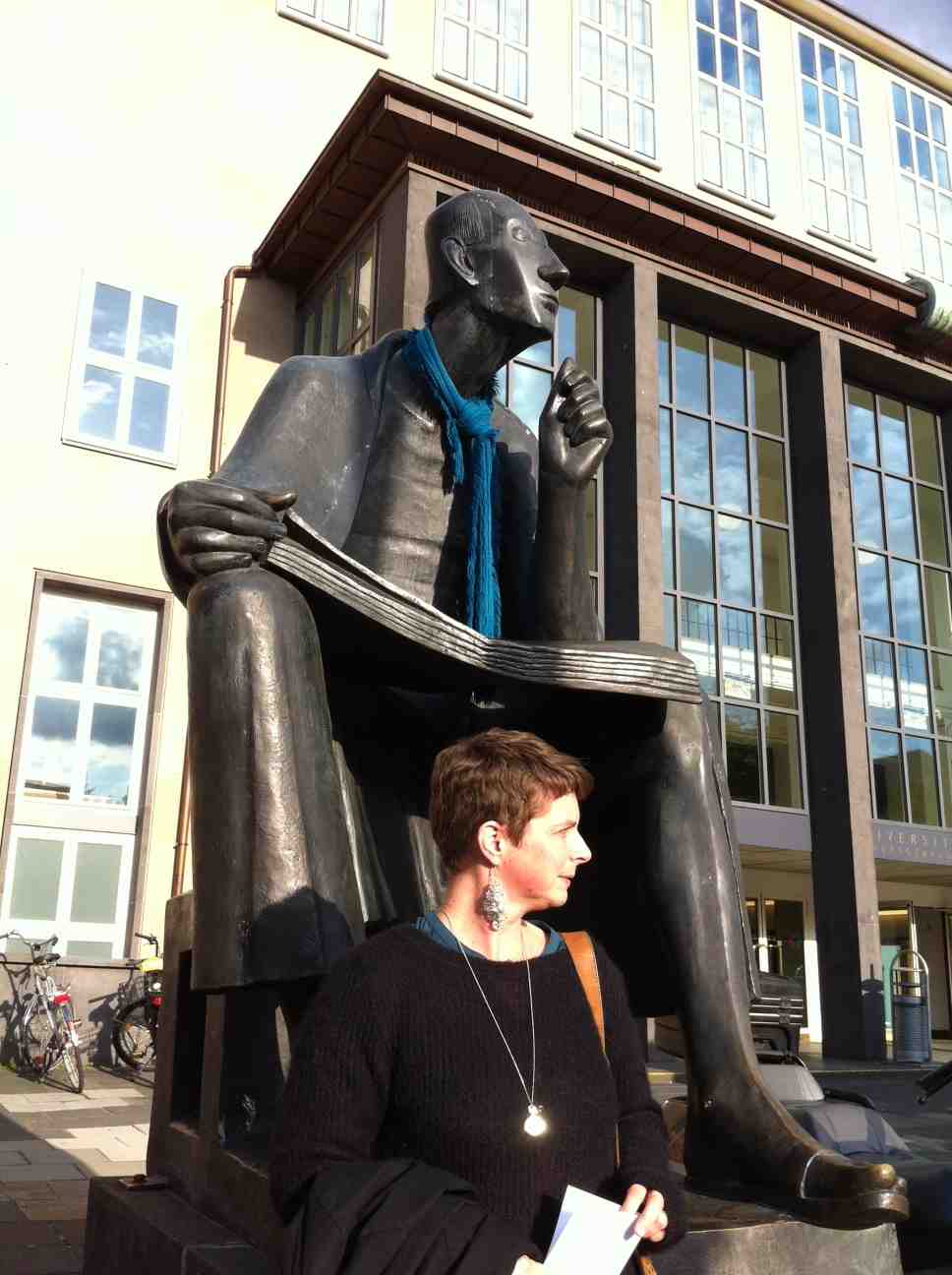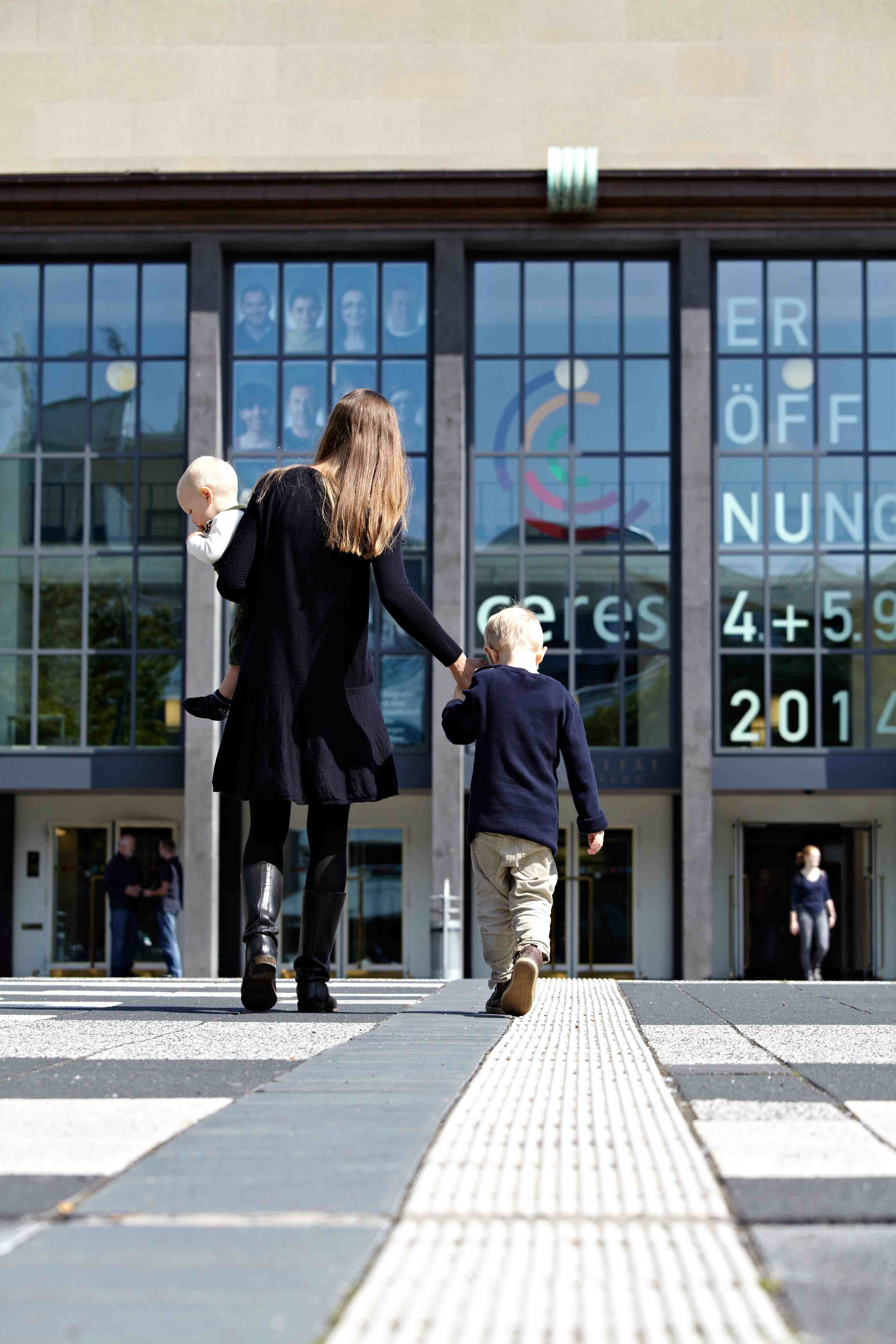Photos: Catherine Bolly | Patric Fouad | Monika Nonnenmacher | Merle Hettesheimer
About a Postdoc
Cologne attracts young international academics
“My job here in Cologne offers exactly what I was looking for.” The Belgian postdoc Catherine Bolly works in Germany’s only Sociolinguistic Lab, which opened its doors on campus in 2015. Professor Aria Adli, the head of the lab, reveals: “I made an international job posting because I wanted to choose from the best possible pool of applicants.” He adds, “Catherine, who was awarded the prestigious Marie Curie Fellowship for her research, brings together everything a lab like ours could wish for: new insights into sociolinguistic research based on her selected data, an international network and her expertise in researching the language of elderly people, something that is quite unique in the landscape of sociolinguistic research.”
"What ya sayin'?"
Professor Adli and his colleagues focus on how people of diverse social and international backgrounds speak. They investigate spontaneous speech with modern statistical and computer-assisted methods. Their research is at the intersection of linguistics and social sciences, and their analyses and the decoding of one’s speech offer valuable clues on the particularity in communication.
A new research area
Catherine Bolly’s research deals with the language of people in late life. Which words and gestures do they use and why? What does this say about their emotions and identity, their social relationships and their lives in general? And, how do these language resources interact with age-associated processes (e.g. a vague gaze indicating a tip-of-the-tongue phenomenon)? The Belgian researcher says: “I met more than 100 old people in my previous work at the Université catholique de Louvain in Belgium, and interviewed a smaller group during my Marie-Curie funded CorpAGEst research project (LINK) in France. Now I use these selected audio and video data to analyze and work on them at the Sociolinguistic Lab Cologne. I would like to better understand older people’s communication by looking at the impact of social factors on their way of speaking and gesturing. For instance, does the strength of their social and family network influence their motivation to communicate or, even, the structure of their speech? Also, since aging goes far beyond linguistic issues, I recently co-created the CLARe network (LINK) to promote interdisciplinary dialogue among linguists and experts of other research areas from all over the world.”
“Catherine does very challenging work here at the Sociolinguistic Lab, and I am more than happy that she has brought this aspect of sociolinguistics to Cologne. This kind of research is widely under-represented, and getting to the core of linguistics in later life, examining the combination of gestures and speech in detail, will tell us more about the development of speech across the lifespan”, explains Aria Adli.
Flexibility for the family
Catherine Bolly is not only a successful and dedicated researcher, she also has family. “I am a mother of two,” she says proudly, “and to reconcile my career as a researcher with having a family is not always easy. But I must say the University of Cologne has been very flexible and supportive. I could arrange my private and professional life with ease. Also, my hometown Namur in Belgium is just a stone’s throw away from Cologne, which allows for a fairly regular commute.”
The University of Cologne is committed to furthering young academics. Supporting them is at the heart of its Institutional Strategy, “Meeting the Challenge of Change and Complexity.” Different measures and activities have been implemented to help new young academics settle in and attain a variety of professional skills beyond their actual research activities. For example, the “Advanced Talents Days” for postdocs shed light on national and international career opportunities during a two-day conference. They were conducted in cooperation with our partner university KU Leuven in Belgium and the RWTH Aachen, and were a great success.
Cologne, the city of Kölsch, Carnival and the Cathedral
“I don’t know much about carnival, but I am eager to experience it,” Catherine notes with a smile. “My interests lie more in music, and Cologne offers an awful lot of opportunities to indulge in all sorts of music, be it Jazz, Pop, Rock or classical music. I went to a concert recently with people from the lab and I really enjoyed it. I am curious to find what else Cologne has to offer for me in the years to come.”




